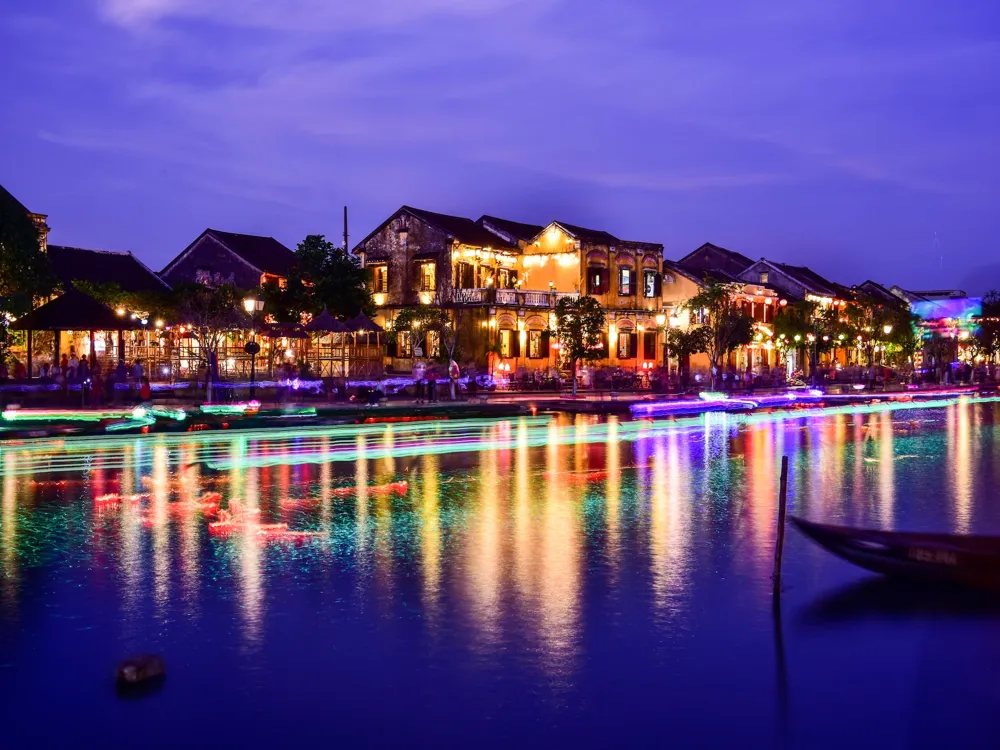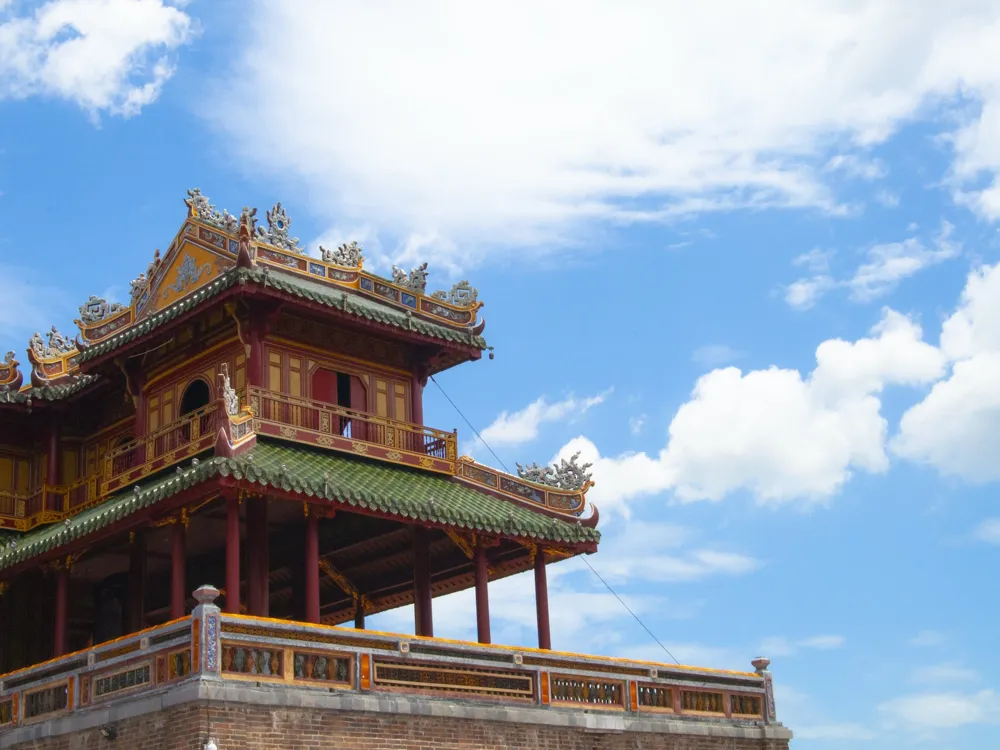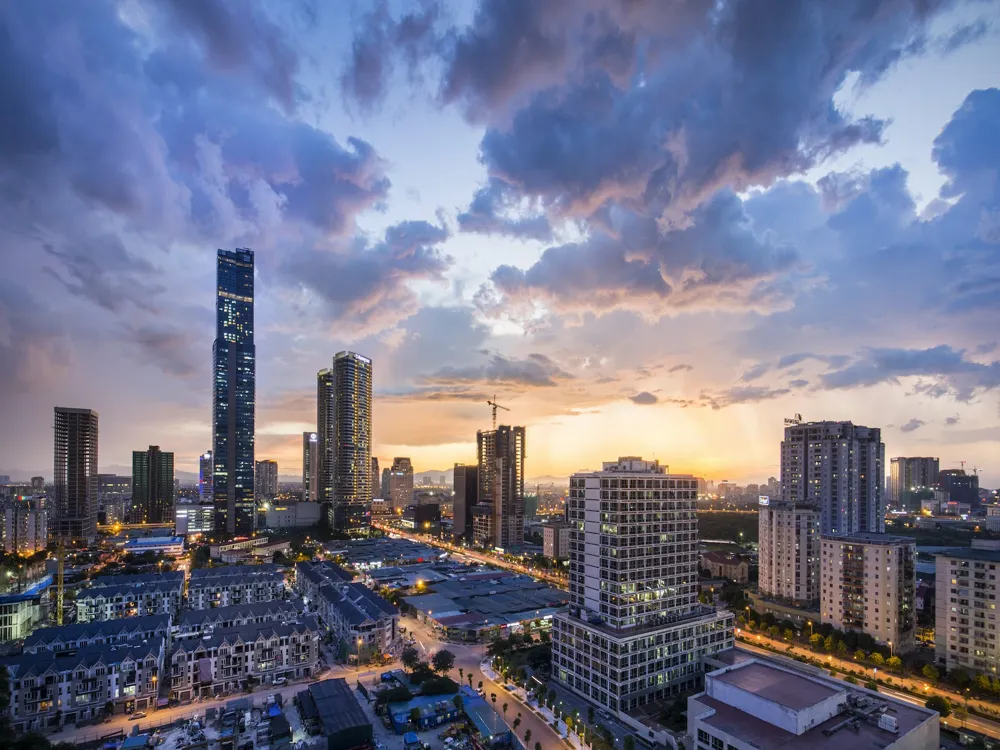Ho Chi Minh Square, located in the heart of Ho Chi Minh City, is a vibrant and historical public space that has witnessed many of Vietnam's most significant events. This iconic square is named after Ho Chi Minh, the revolutionary leader who played a pivotal role in the country's history. The square is not only a popular tourist destination but also a symbol of Vietnam's struggle and triumph. It's a place where history, culture, and modern life seamlessly intertwine, offering visitors a unique glimpse into the soul of Vietnamese society. The square is surrounded by architectural marvels, lush greenery, and bustling streets, making it a focal point for both locals and tourists. The area is often buzzing with activities, ranging from cultural festivals to public gatherings, reflecting the lively spirit of the city. At the heart of the square stands a statue of Ho Chi Minh, a revered figure, greeting visitors with his iconic smile and benevolent gaze. The surrounding buildings, many of which are remnants of French colonial architecture, add a touch of historical elegance to the modern landscape of the city. Visiting Ho Chi Minh Square is like taking a step back in time while simultaneously experiencing the rapid growth and development of contemporary Vietnam. The square is not just a testament to the nation's past but also a beacon of its future, embodying the resilience and ambition of the Vietnamese people. The architecture of Ho Chi Minh Square is a harmonious blend of historical significance and contemporary elegance, making it one of the most visually stunning places in Vietnam. The square is flanked by a variety of architectural styles, ranging from the traditional Vietnamese designs to French colonial structures, each telling its own story of the city's rich and diverse history. At the center of the square, the statue of Ho Chi Minh stands tall, a symbol of national pride. This iconic figure is surrounded by well-manicured lawns and gardens, adding a touch of greenery to the urban landscape. The statue is a popular spot for photographs, as it captures the essence of the square's historical importance. The surrounding buildings are a testament to the French colonial era, characterized by their grandiose facades, intricate detailing, and symmetrical designs. The Notre-Dame Cathedral Basilica of Saigon and the Saigon Central Post Office are prime examples of this architectural style. These structures are not only historically significant but also aesthetically pleasing, showcasing the meticulous craftsmanship of the era. In contrast to these historical landmarks, the modern skyscrapers that tower over the square represent the city's rapid development and economic growth. These contemporary buildings, with their sleek designs and state-of-the-art facilities, are a stark reminder of Ho Chi Minh City's transformation into a bustling metropolis. The fusion of old and new architecture in Ho Chi Minh Square creates a unique and dynamic environment, reflecting the city's ability to preserve its heritage while embracing modernity. This architectural diversity is what makes the square a must-visit destination, offering a comprehensive experience of Ho Chi Minh City's past, present, and future. The best time to visit Ho Chi Minh Square is during the cooler months from December to March. The weather is more pleasant, making it ideal for exploring the square and its surroundings. Early mornings or late afternoons are perfect for avoiding the midday heat and the larger crowds. When visiting the square, it's important to be culturally sensitive. Dress modestly, especially when entering religious or official buildings. Showing respect to the statue of Ho Chi Minh and other historical monuments is also crucial, as they hold great significance for the Vietnamese people. Ho Chi Minh Square is surrounded by numerous attractions, including the Notre-Dame Cathedral Basilica of Saigon and the Saigon Central Post Office. Plan your visit to include these landmarks, as they offer a deeper insight into the city's history and architecture. Don't miss out on the local cuisine available around the square. Street vendors and local cafes offer a variety of authentic Vietnamese dishes that are both delicious and affordable. Trying local specialties is a great way to immerse yourself in the culture of Ho Chi Minh City. Ho Chi Minh Square is easily accessible by public transport, including buses and taxis. For a more local experience, consider renting a bike or a scooter. Make sure to have a map or a navigation app handy, as the surrounding streets can be quite bustling and confusing for first-time visitors. Reaching Ho Chi Minh Square is relatively easy, as it is well-connected and centrally located. Visitors can opt for various modes of transportation depending on their preference and location. For those staying in the city, the most convenient way to get to the square is by taxi or ride-sharing services. These are readily available and offer a comfortable and direct route to the destination. Public buses also serve the area around the square, providing an economical and authentic way to travel. For the more adventurous, renting a scooter or a bicycle is a great option, offering the flexibility to explore the city at your own pace. For international travelers, the square is a short drive from Tan Son Nhat International Airport. Airport shuttles, taxis, and private transfers can be arranged for a hassle-free journey to the heart of the city. Upon arriving at the square, visitors will be greeted by the bustling energy and rich history of Ho Chi Minh City, making the journey well worth it. Read MoreOverview of Ho Chi Minh Square
Architecture of Ho Chi Minh Square
Tips When Visiting Ho Chi Minh Square
Best Time to Visit
Cultural Sensitivity
Exploring Nearby Attractions
Local Cuisine
Transportation and Navigation
How To Reach Ho Chi Minh Square
Ho Chi Minh Square
Ho Chi Minh City
₹ 17,501 onwards
View ho-chi-minh-city Packages
Weather :
Tags : Monument
Time Required : Less than 1 hour
Planning a Trip? Ask Your Question
Ho-chi-minh-city Travel Packages
View All Packages For Ho-chi-minh-city
Top Hotel Collections for Ho-chi-minh-city

Private Pool

Luxury Hotels

5-Star Hotels

Pet Friendly
Top Hotels Near Ho-chi-minh-city
Other Top Ranking Places In Ho-chi-minh-city
View All Places To Visit In ho-chi-minh-city
View ho-chi-minh-city Packages
Weather :
Tags : Monument
Time Required : Less than 1 hour
Planning a Trip? Ask Your Question
Ho-chi-minh-city Travel Packages
View All Packages For Ho-chi-minh-city
Top Hotel Collections for Ho-chi-minh-city

Private Pool

Luxury Hotels

5-Star Hotels

Pet Friendly






















